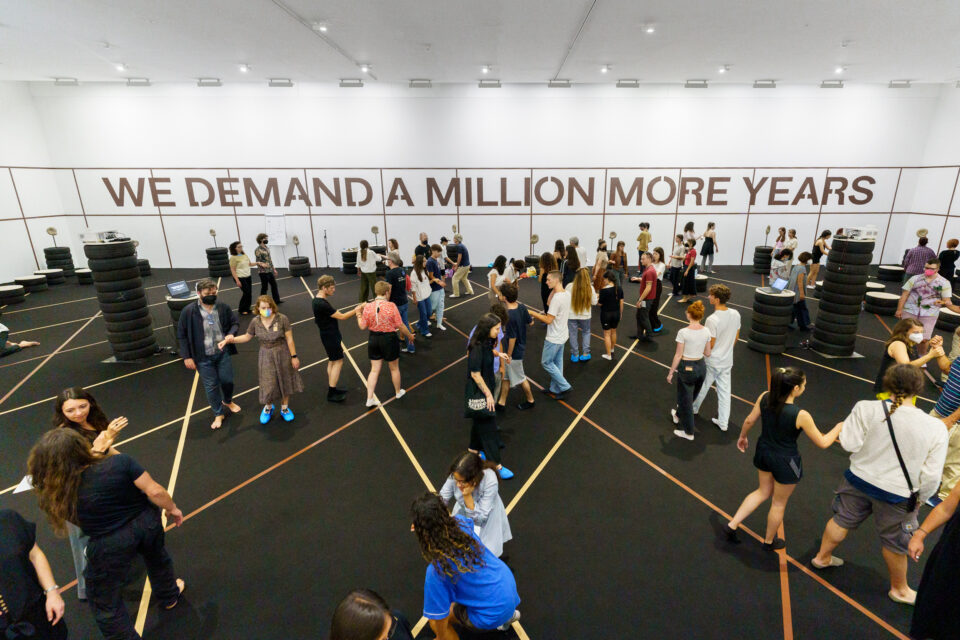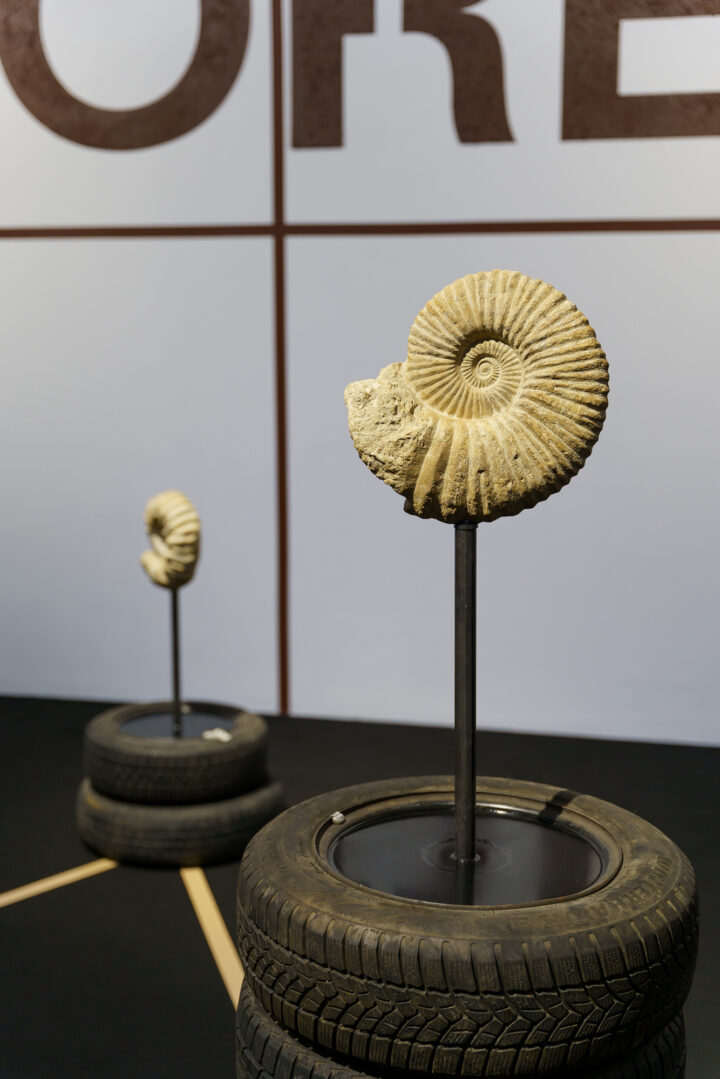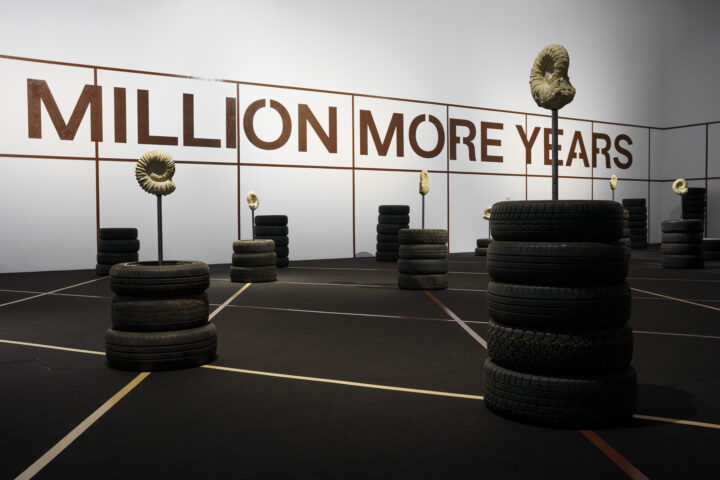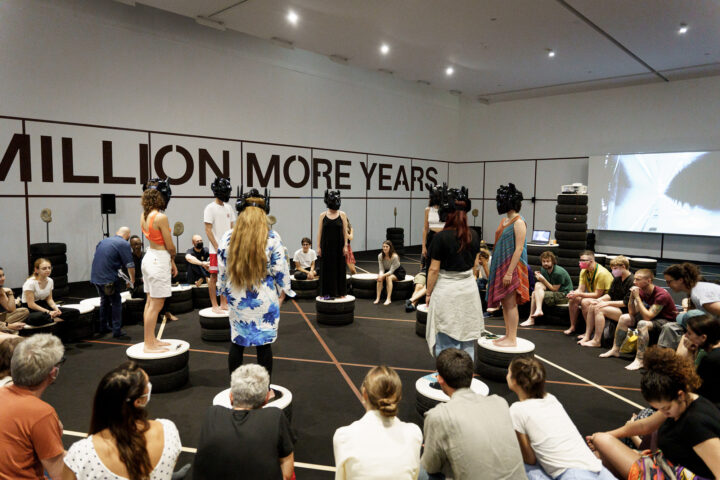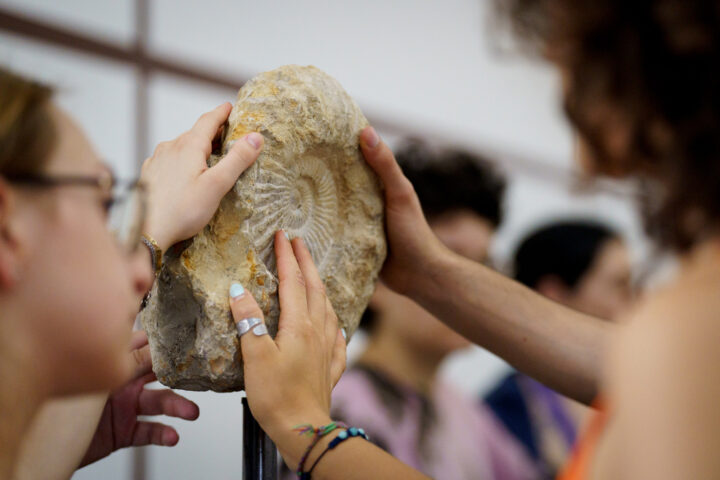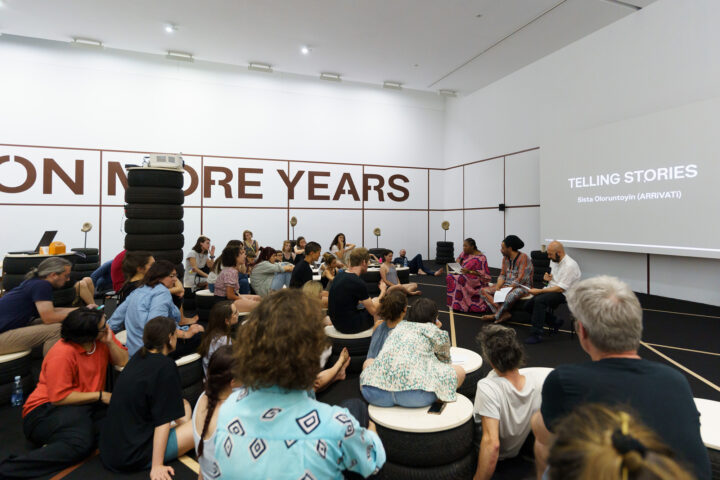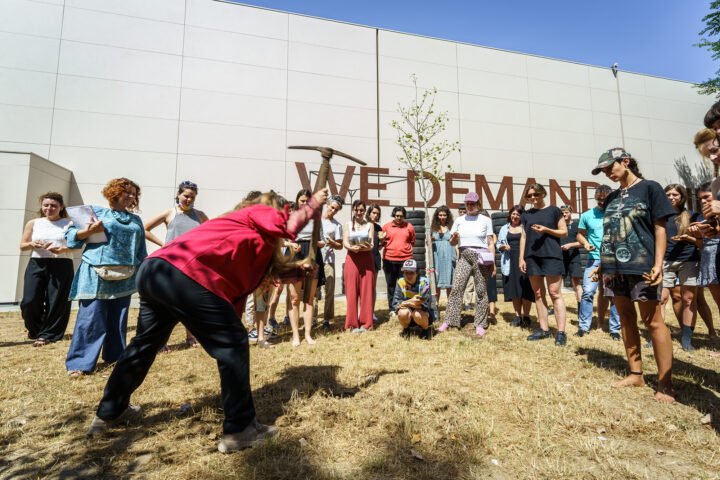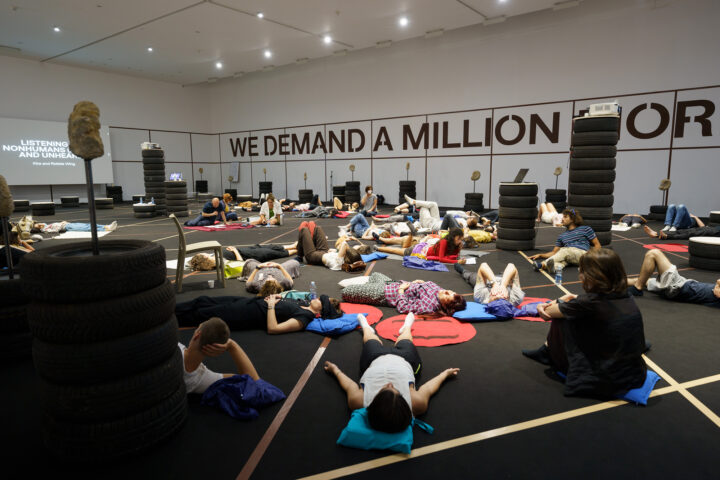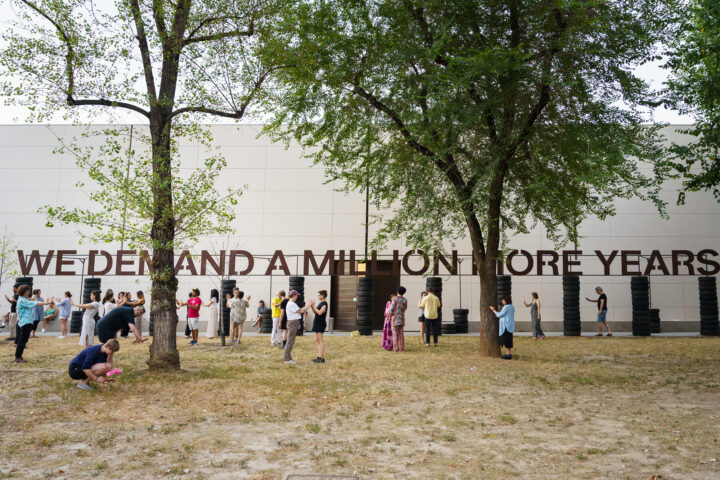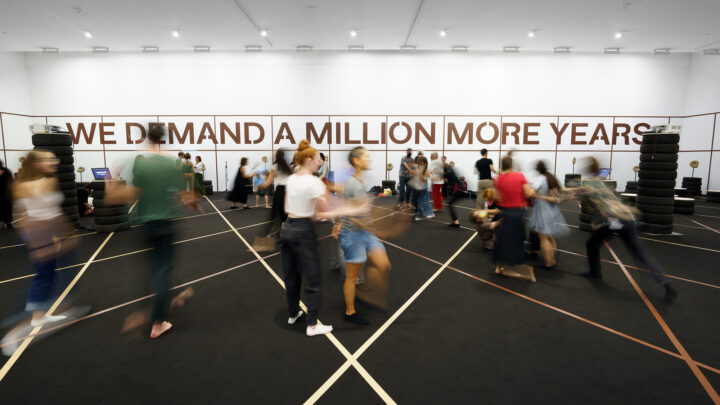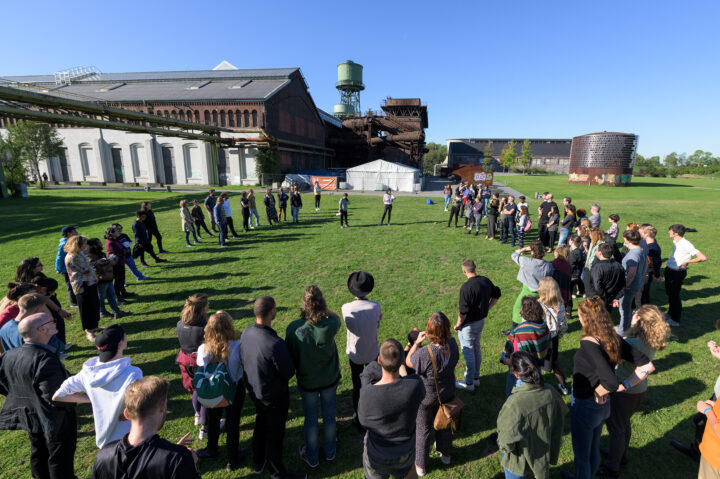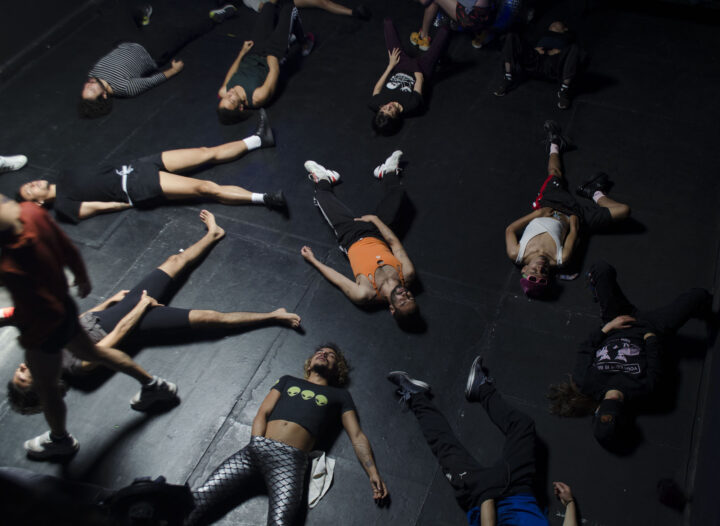The focus of this issue was on chronopolitics in a time where time no longer exists. We demand a million more years was the answer to a policy that addresses a maximum of two generations (our children’s children) while the fossil fuels we use today not only make the future unlivable but also stand for a heritage that is millions of years old and is now being destroyed. It was about refusing a temporal paradigm that dominates our present and learning to catch up and make up for the future: more than ten thousand years, one hundred thousand years, one million years of living worlds for all.
The 2022 edition focussed on chronopolitics: the politics of time in a moment we are out of time. Artists, philosophers, activists as well as non-human presences led trainings on time travel, deep listening, radical slowness, the subconscious present and plant based time to reclaim the means of production of our future.
The architecture of the training camp shaped the content and practical engagement: fossil ammonites from a family of polyps and octopuses that was wiped out in the 5th mass extinction 66 million years ago next to used tyres – symbol of the Turin car industry and the Italian economic boom, but also simply hardened petroleum, fossil heritage whose burning accelerates the destruction of our shared futures.
Artist: Jonas Staal / Curator & co-progammer: Florian Malzacher / Coordinator Studio Jonas Staal: Nadine Gouders / Architect: Paul Kuipers / Visual Identity: Remco van Bladel / Photo and video documentation: Ruben Hamelink / Fondazione Sandretto Re Rebaudengo: Curators: Irene Calderoni and Bernardo Follini / Assistant Curator: Rosita Ronzini / Curatorial Assistant: Carlotta Bandieramonte / Technical production manager: Giuseppe Tassone / Technical Production: Chiara Casassa, Fabio Di Camillo and Kimitake Sato / Logistics: Carla Mantovani / Educational Department: Elena Stradiotto and Francesca Togni / Accessibility: Annamaria Cilento / Accessibility Consultant: Diana Anselmo
Commissioned by Fondazione Sandretto Re Rebaudengo, Turin. Supported by Mondriaan Foundation, Amsterdam; Goethe-Institut Turin. Special support by Direzione Rifiuti, Bonifiche e Sicurezza Siti Produttivi della Città Metropolitana di Torino; Amiat Gruppo Iren; Turin Carta.
